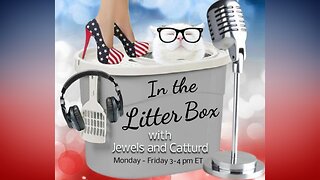Too painful!African bees try to protect the nest when threatened by Lions, Humans, Bears, Eagles
"Maximum survival: eight years" Observations: In the honey bee, workers and queens have different lifespans, just like in other social insects. There have been reports of queens living up to eight years. Workers can live for 0.2–0.4 years if they are kept from foraging, but their lifetime is limited by foraging. Workers can transform into the stress-resistant "diunitus" over the winter and have a life span of up to 0.9 years.
Dopamine-producing cells in our mesolimbic system are what fuel human cravings for sugary foods and other "wants." Current experimental studies indicate that honeybees (Apis mellifera) may also have a comparable system that makes them "want" to look for nectar sources.
Researchers discovered that bees' dopamine levels were higher when they were looking for food and decreased once they found it, according to a study that was published in Science Thursday, April 28. According to the researchers, dopamine may also have contributed to the hedonic, or enjoyable, "memory" of the sugary treat because dopamine levels increased when foragers danced to alert other foragers to the locations of the delicacies.
The entire tale is brand-new. Martin Giurfa, a neurologist at Paul Sabatier University in Toulouse, France, and coauthor of the paper, says, "To show that there is a wanting system in insects is generally new." "Bees really are amazing."
Dopamine is recognized to be important in learning and reward in both humans and invertebrates. Many of the brain connections involving dopamine were described by Giurfa and his colleagues several years ago while conducting research on the neurotransmitter in bees. "We thought there might be more than just representing reinforcement, punishment, and reward because we found so many different pathways." He started investigating potential roles for dopamine in the behavior of honeybees.
Giurfa's collaborators used whole-brain liquid chromatography to measure the amount of dopamine in bees immediately after they left the hive, when they arrived at a food source—a series of artificial feeders—or right after they fed. They observed managed beehives of Fuijan University's College of Bee Science in Fuzhou, China. The bees' dopamine levels tended to be high shortly after they left the hive and during their whole flight to a food source. However, after consuming a sugary meal, the bees' dopamine levels decreased, suggesting that their desire to feed had vanished, according to Giurfa.
Upon their return to the hive, foragers displayed their signature waggle dance, which involved shaking ferociously to alert other foragers to the whereabouts of food sources. Dopamine levels were as high in dancing bees as they were in bees foraging for food, the researchers discovered. This suggested to Giurfa that the bees might have been "evoking" the feeling of looking for nectar while they danced, in a manner similar to how someone might pleasantly remember getting a delicious treat. "You have to assume that this is not a robot since the dancers exhibit this dopamine peak when they begin to dance. It's a person with a memory," Giurfa explains.
The artificial manipulation of dopamine levels in the bees did not influence their foraging time. The bees spent more time inside the hive when the researchers reduced their dopamine levels, though, which further supported the researchers' conclusion that dopamine plays a role in the bees' "want" to forage. Furthermore, even 30 minutes after receiving an artificial dopamine surge, the bees performed better on odor-association tasks, indicating that the neurotransmitter may aid in the finding of a new food source for starving bees.
To rule out any possible social effects on dopamine, the researchers also examined each bee alone. Bees, especially those that had gone without food, had high dopamine levels when searching for food, even when they were by themselves.
Neuroscientist Karen Mesce of the University of Minnesota, who has worked with several of the articles' authors before, tells The Scientist, "I think it's a very interesting and thought-provoking paper," but she issues a warning that a bee's wanting-like drive might not be exactly like a human's. It is imperative that we exercise extreme caution when discussing insects. The word "hedonic" means "pleasurable." Most people don't think of insects as having emotions. It is disputed by a large number of neuroscientists that bees are self-aware and experience pleasure.
#4kvideo #relax #bee #africa #animals #wildlife #animalworld #animalfilms #amazing #beelife #beer #beef #beers #bee #beerporn #beerstagram #beergeek #bees #beerlover #beetle #beerMe #beerus #beertography #beersnob #Beertime #beerpong #beernerd #beetroot #beetlejuice #beergasm #beerlovers #beerlove #beets #beersofinstagram #beethoven #beehive #beeswax #beerlife #beerfest #beeroftheday #animals #animal #animallovers #animallover #animalsofinstagram #animales #animalphotography #animalrights #animalkingdom
-
 1:02:40
1:02:40
In The Litter Box w/ Jewels & Catturd
21 hours agoPolice State | In the Litter Box w/ Jewels & Catturd - Ep. 570 - 5/17/2024
45.2K40 -
 1:57:17
1:57:17
Twins Pod
4 hours agoTwins Pod - Episode 13 - Tim Kennedy: Seals Vs Green Berets, Tigers Vs Bears, & Israel Vs Palestine
40.4K21 -
 2:21:43
2:21:43
Tucker Carlson
1 day agoDave Smith: Russia, Israel, Trump & the Swamp, Obama, and the Media Attacks on Joe Rogan
127K381 -
 59:55
59:55
shaneyyricch
4 hours agoPERMANENTLY BANNED ON YOUTUBE - LETS RUMBLE
22.4K12 -
 3:23
3:23
Stephen Gardner
3 hours agoNew Trump Testimony DESTROYS Michael Cohen HUSH MONEY case!
25.2K13 -
 39:11
39:11
Line Drive Podcast
4 hours agoHarrison Butker is the left's new Enemy #1!
28.8K9 -
 7:10:22
7:10:22
Turtleboy Daily News
10 hours agoKaren Read Trial Day 14
62.4K26 -
 1:29:10
1:29:10
Nina Infinity
19 hours agoGOOD NEWS - Infinite Hope # 185
35.8K8 -
 33:49
33:49
TudorDixon
7 hours agoTransparency and Accountability in Schools with Corey DeAngelis | The Tudor Dixon Podcast
25.3K22 -
 55:38
55:38
Russell Brand
10 hours agoWHO "Murdered" People In Ebola Clinical Trails!! Dr Dave Martin EXPOSES WHO Like Never Before - SF #368
187K462